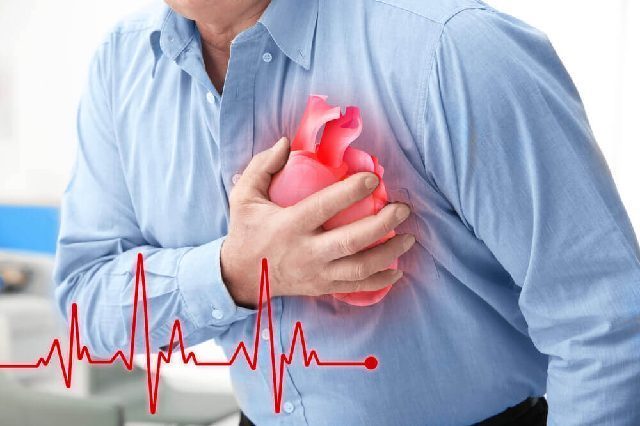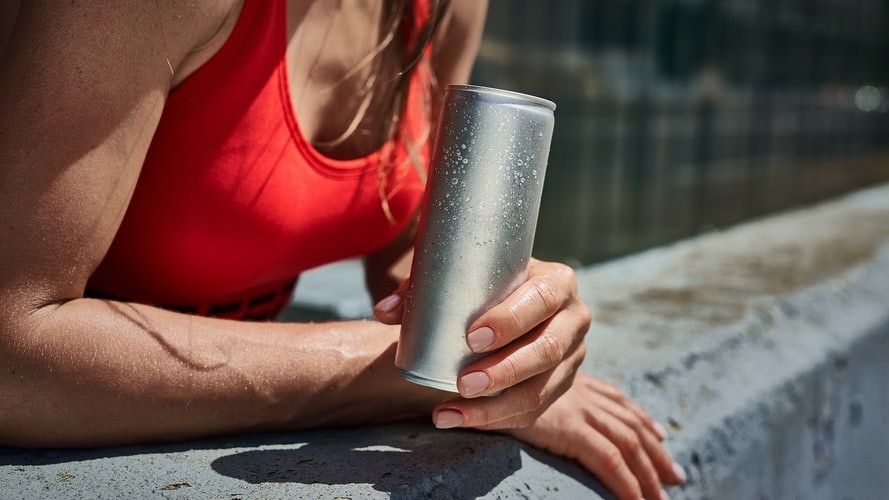Are energy drinks harmful?
People have come to love energy drinks and there is a huge market for them even though they are potentially harmful. They are popular all over the globe and not just for those using them for extra energy in order to work out at the gym. People drink them socially, at work, and even while at home while playing on an online casino South Africa. By the year 2024 the international Energy Drink market is likely to reach $72 billion. A huge number, and excellent news for the energy drink manufacturers. But is this good news for the consumer?
What exactly is it that they are consuming? Most of the big brands, like Monster Energy, Red Bull, NOS Energy Drink and Rockstar Energy Drink are made up of the same ingredients. Below we outline the effects of these ingredients on consumer’s bodies.
Energy drinks and dehydration

The most potent ingredient in energy drinks is caffeine. Caffeine is known to be a diuretic meaning that caffeine intake increases the amount of salt and water that your body eliminates through urine. In a 16 ounce can of NOS Energy, Monster Energy or Rockstar Energy there is about 160 mg of caffeine. In an 8.4 ounce can of Red Bull there is 80 mg. A regular cup of coffee contains around 80 mg of caffeine. There is a risk here of dehydration especially when people are unaware of the need to increase water intake when drinking these products.
The Food and Drug Administration state that around 400 mg of caffeine daily should be the limit, equivalent to about 4 or 5 cups of coffee. However, there is no law that states that drink manufacturers need to list how much caffeine is present in their products so people do not know how much they are consuming.
Energy drinks effect on your heart

Because caffeine is a diuretic, this also has implications for your heart. A study carried out in 2019 and published in the Journal of the American Heart Foundation reported that people in good health who consumed 32 ounces of energy drinks within one hour registered abnormal heart activity and raised blood pressure after 4 hours.
There have also been other studies that concur with this. A study that was carried out earlier, in 2015 and published by the Canadian Journal of Cardiology. This study looked at the cardiac events relating to teenagers after they had consumed energy drinks.
They found that excessive consumption of energy drinks among teenagers did impact the heart and especially those with any kind of heart condition. Changes in heart rhythm were also found among those with no known heart issues. The risk becomes greater if they are involved in sports activity.
It is possible that the high levels of caffeine present in these drinks can trigger a previously unknown condition in the heart. There have been cases where young people have suddenly experienced heart palpitations after drinking these high energy drinks and then working out at the local gym, leading to admittance to the emergency department at the hospital.
Energy drinks and dental hygiene

Energy drinks are really bad for your teeth. They are full of citric acid which is very corrosive to teeth. “Imagine the collision of citric acid with sugars, and you have the perfect storm for tooth enamel demineralization and/or tooth decay, says Anastasia Turchetta, a registered dental hygienist. “Once your enamel is gone, it won’t grow back! What’s next? Tooth sensitivity and thinner enamel, which will look more yellow and attract more stains.” Unfortunately, it is not a requirement to state how much citric acid is present on the label so it is impossible to know exactly how much it contains.
Are Energy drinks really giving you extra energy?

The truth is that energy drinks are not really giving you real energy at all. The two main ingredients are taurine, L-carnitine and glucuronolactone neither of which provides genuine energy. According to Lisa Cohn, nutritionist, “Taurine and L-carnitine are amino acids involved in energy metabolism and are naturally found in muscle and organ tissue. They are used in energy products but do little to boost energy. Glucuronolactone is often said to increase energy because of its supposed impact on energy metabolism, but it has no real effect on energy levels either.”
Sugar is probably where the feeling of extra energy comes from, as glucose is a high source of energy. However, this feeling doesn’t last very long. There are, of course, undesirable effects of consuming lots of sugar. There are approximately 13 teaspoons of sugar in one energy drink. This is way more than the 6 teaspoons of sugar daily intake recommended by the World Health Organization.
According to nutritionist and author, Beth Warren “Over time, this amount of simple sugar exposure contributes to obesity and insulin resistance. Studies also show that energy products cause complications for those with heart conditions and high blood pressure.” She goes onto say “In the end, what we know and do not know about the effects of energy products is enough to skip drinking them.”
Energy drinks can lead to headaches and affect your mood

Another ingredient in energy drinks is the plant, Guarana. However, the fact that it is a plant doesn’t mean that it is something you should consume. It is very high in caffeine, much more than the caffeine in your regular cup of coffee.
Lisa Cohn explains that “Guarana stimulates the central nervous system”. She goes on to say that “This provides a feeling of energy boost and mental clarity, and can reduce appetite. However, it can also cause adverse energy drink side effects such as headaches, insomnia, nervousness, and mood swings; it can be dangerous when combines with prescription medication; and it can cause various side effects, from cardiac and digestive problems to impaired judgement and decision-making.”
Guarana is not listed as an extra source of caffeine on the label and this presents a real problem as this could cause people to literally overdose on caffeine.
It is thought that consuming 1,200 mg of caffeine in a very short time can lead to seizures and according to the Food and Drug Administration can be seriously life threatening. Knowing the risks of caffeine is important and consuming too much of it is not recommended. Enjoying your coffee as part of a healthy diet is generally good for most people. However, too much and definitely the amounts contained in high energy drinks can be potentially dangerous for your health.




